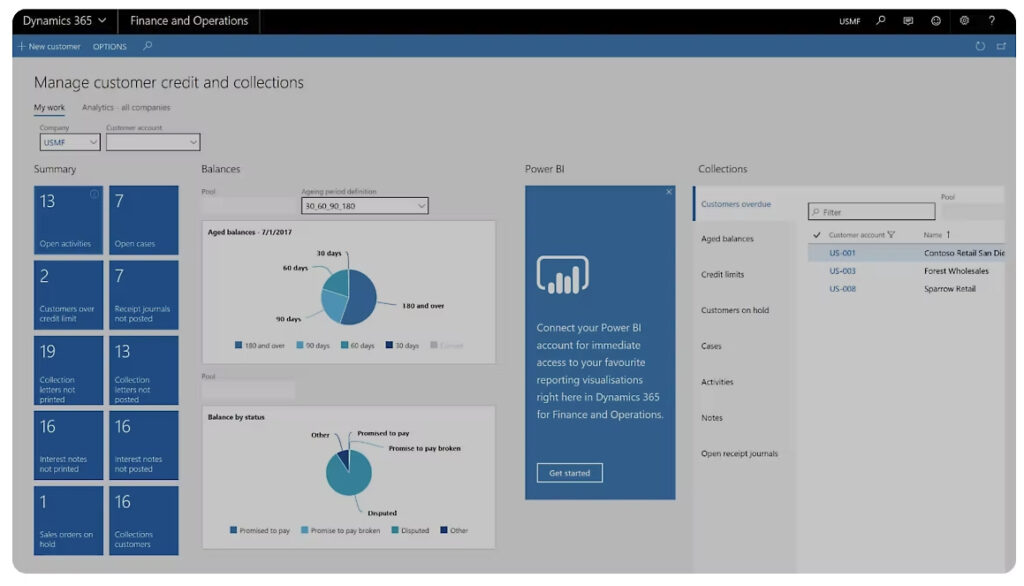Why Choose Microsoft Dynamics 365 Finance and Operations?
- Comprehensive Financial Management: Gain complete control over your financial operations with advanced tools for budgeting, forecasting, and real-time financial reporting. Dynamics 365 Finance and Operations provides you with insights to make data-driven decisions, improve cash flow, and ensure regulatory compliance.
- Optimized Operations: Enhance your supply chain, manage inventory, and streamline production processes with a solution designed for seamless integration. Our expertise ensures that Dynamics 365 Finance and Operations aligns with your unique business needs, optimizing your entire operations.
- Scalability and Flexibility: Adapt to market changes and business growth effortlessly. Microsoft Dynamics 365 offers scalable solutions that grow with your business, providing the flexibility to meet evolving demands and challenges.
- Real-Time Data and Insights: Leverage powerful analytics and reporting tools to gain actionable insights into your business performance. Make informed decisions with up-to-date data that drives strategic planning and operational improvements.



